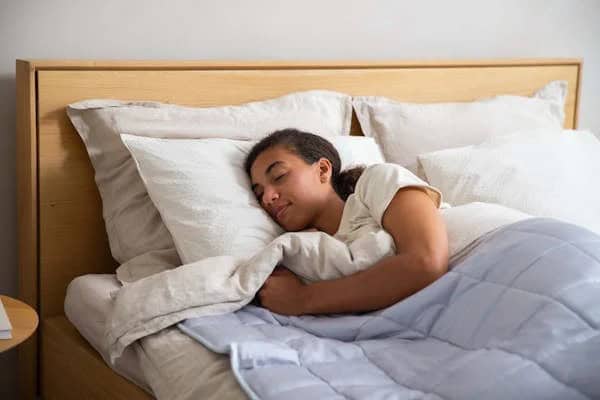Sleep is a unique human benefit. During sleep, we restore energy, and there is a renewal of many functions of the body. At the same time, about half of the world’s population lacks sleep. These are different levels of sleep deprivation, from intermittent to regular. Chronic sleep deprivation can lead to impaired thinking and physical functions. Regular sleep deprivation provokes the manifestation of chronic diseases and weight gain. A proper activity and rest schedule are critical to leading a healthy life. Sleep has been the subject of much research in physiology, psychology, and psychiatry. It is a great topic to study from many different angles. Therefore, it is not for nothing that students choose it for their essays and other research papers. The best way to cope with such assignments is to cooperate with a college essay writing service, where experts help to choose the right topic or write a paper from scratch.
Especially popular in recent times is the study of the impact of various gadgets and programs on sleep. We, in turn, will consider the progress in this direction and suggest what innovative digital techniques help people fight insomnia and sleep deprivation.\

Smartwatches and Fitness Trackers
Appearing on the mass market about ten years ago, smartwatches and fitness trackers attracted customers who can track heart rate, plan workouts, and receive notifications from their phone right on their wrist. With each new model and year, the gadgets’ capabilities have expanded. Now, they can determine the oxygen level in the blood, measure blood pressure, warn of dangerous heart activity, and much more. In addition, now smartwatches and fitness trackers track activity throughout the day and successfully record changes in your performance during sleep. Many innovative sensors help to track sleep phases, record heart rate throughout the night, and, based on many other indicators, advice on improving sleep.
And it’s not just a marketing move by manufacturers. A Harvard Medical School study has confirmed the effectiveness of smartwatches and fitness trackers. According to the study, following personalized advice from gadgets improved sleep quality by 15-20%.
Smart Mattresses and Pillows
Innovative mattresses and smart pillows are another technological aid to improving sleep quality. Developers and engineers saw the potential of wrist-worn gadgets 4 and decided to complement them with more massive accessories. Modern smart mattress models know how to adjust firmness and temperature automatically depending on your posture and personal preferences. Smart mattresses are equipped with sensors that track your movements and breathing during sleep and automatically adapt to create the most comfortable posture and even breathing. Several studies have also confirmed the effectiveness of smart mattresses.
On the other hand, smart pillows have soft vibration motors and built-in speakers that can play quiet, soothing music for a more restful sleep. The massagers relax the neck to help relieve tension. Sensors also monitor the level and volume of breathing. Smart pillows are primarily designed to help people fight apnea and snoring.
Humidifiers and Air Purifiers
Unobvious sleep aides can be air cleaners and humidifiers. If there is insufficient humidity in the room, the temperature feels higher than it is, and people fall asleep best when the air is clean and cool. Air purifiers can help remove up to 99% of dust particles and allergens from the air, which helps you breathe more easily through your nose and, therefore, fall asleep more easily.
Mobile Apps for Relaxation and Meditation
One way to improve sleep quality and make it easier to fall asleep is to meditate and relax before bed. Many mobile apps are now available to help you get in the mood for sleep. Let’s look at a few popular apps like Calm and Headspace.
The Calm app has a database of soothing nature sounds, calming music, and proven meditation guides. A University of California study found that regular use of apps like these before bed helps reduce stress and improve sleep quality by 20%.
Headspace offers similar features, plus meditations for sleep and relaxation. It also includes a Sleepcasts program that combines stories and soothing sounds.
Sleep Tracking Apps
Sleep tracking apps like Sleep Cycle and Pillow help analyze your sleep habits. The apps generate tips to improve sleep quality based on the collected data. The apps use your phone’s microphone to capture sounds that indicate changes in your sleep phase. Based on the data collected, the apps generate a report.
The use of gadgets and programs to improve sleep can also be a great topic for student research. The only thing you need to do is choose the right topic and decide which of the academic disciplines you want to emphasize. The experts from the writing service will help you figure it out. Check out the comprehensive essayusa review, where they will tell you how the writing works and what services you can get when you turn to them for help.
Smart Home Management Apps
If you have a smart home connected, its settings can improve your sleep quality. With Google Home or Amazon Alexa voice assistants, you can customize several settings to help you prepare for sleep more easily and sleep better.
For example, with the Google Home assistant, you can set it to automatically turn on soft lights before bed and turn off all electronic devices to create a backdrop of absolute silence that makes it easier for your body to transition to sleep.
Conclusion
In 2024, many studies have already been done on using specialized gadgets and apps to improve sleep quality. Harvard Medical School, Stanford University, University of California Los Angeles, Massachusetts Institute of Technology, and the European Academy of Sleep Sciences conducted these studies. Researchers tested the effects of wrist-worn gadgets, smart pillows and mattresses, air purifiers, meditation, and sleep-tracking programs. In each case, the studies found that using at least one of the gadgets or apps helped improve sleep quality between 10 and 25 percent.
 Gearfuse Technology, Science, Culture & More
Gearfuse Technology, Science, Culture & More


